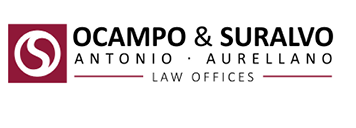With the focus on environmental, social and governance, a clearer understanding will help businesses align with global frameworks
The venerated American economist Milton Friedman once said: “The business of business is business.” The only social responsibility of the corporate entity, the free-market godfather argued, is to maximise profits.
Yet, half a century later, a new wave of regulatory measures includes both shareholder values and stakeholder interests as proper subjects of business consideration. This evolutionary process of business philosophy has gone by many names: corporate social responsibility; business and human rights; or corporate citizenship. But today, the space where the shareholder and the stakeholder meet is perhaps best known through the environmental, social, and governance (ESG) framework.

Partner
Ocampo & Suralvo
Metro Manila
Email: caurellano@ocamposuralvo.com
ESG represents a set of criteria used to measure corporate performance in three specific areas. Environmental considers the company’s ecological footprint, taking into account aspects such as carbon emissions, responsible waste handling and pollution control. Social focuses on the company’s relationship with people, including its employees, customers and local communities. Finally, governance assesses the internal workings of the company, including the independence of directors, anti-bribery and corruption measures, and overall ethical stance.
This article examines how ESG factors are being incorporated into the Philippine legal order. But more than simply identifying the relevant regulations, the country’s ESG developments are considered within a broader global framework – addressing supply chain due diligence obligations seen in jurisdictions globally such as France, the Netherlands, the US, UK and EU, and upstream impacts these foreign regulations have on local enterprise.
ESG STANDARDS
ESG obligations are not codified through a single legislation. Rather, they are brought into force through various statutory or regulatory mechanisms.
The “E” standards, for example, are addressed through legislation that aims to control pollution – namely the Philippine Clean Air Act, 1999, and Philippine Clean Water Act, 2004 – and promote the proper disposal of solid waste, such as the Ecological Solid Waste Management Act, 2000, and other toxic and hazardous waste, in the Toxic Substances and Hazardous and Nuclear Wastes Control Act, 1990.
In 2019, the Philippines enacted the Energy Efficiency and Conservation Act, providing fiscal and non-fiscal incentives to energy efficiency projects, and mandating establishments to develop and design measures for energy efficiency, conservation and sufficiency, including installation of renewable energy technologies.
To offset carbon emissions, the government encourages the private sector to participate and invest in reforestation programmes under the National Greening Programme of the Department of Environment and Natural Resources. Additionally, the Extended Producer Responsibility Act, 2022 requires large companies to adopt and implement policies for the proper management of plastic packaging waste.
The “S” standards, on the other hand, take the shape of labour standards, privacy and data protection measures, as well as human rights standards. The Expanded Anti-Trafficking in Persons Act, 2022, for example, punishes corporations that engage in forced labour, child abuse and involuntary servitude.
Finally, the “G” standards find support in the Revised Corporation Code, which empowers the Securities and Exchange Commission (SEC) to promote corporate governance and dissolve or impose sanctions on corporations that engage in graft and corrupt practices.
The Philippines is also gradually upholding ESG criteria through corporate reporting obligations. The SEC issued Memorandum Circulars (MCs) 19-16 and 24-19, which respectively created the Code of Corporate Governance for Publicly Listed Companies and the Code of Corporate Governance for Public Companies and Registered Issuers. These codes require companies to disclose their ESG performances and practices in their annual corporate governance reports.
Similarly, SEC MC 04-19 provides for the Sustainability Reporting Guidelines for Publicly-Listed Companies – a voluntary framework for companies to report on their ESG impacts and initiatives using internationally recognised standards such as the Global Reporting Initiative and UN Sustainable Development Goals.
Earlier this year, SEC MC 11-22 also instituted the Rules on Sustainable and Responsible Investment (SRI) Funds, which provide for minimum qualifications and reporting requirements of SRI-compliant funds.
FOREIGN SUPPLY CHAIN
ESG compliance has taken compulsory form in various jurisdictions around the world. For example, the German Act on Due Diligence in Supply Chains, known as Lieferkettengesetz (LkSG), came into force on 1 January 2023.
The LkSG imposes on corporate entities headquartered or doing business in Germany – including foreign companies conducting business there – a host of human rights and ecological obligations. This includes prohibitions on child labour, forced labour, slavery, and compliance with workers’ rights and environmental standards. Notably, these rights and duties are also recognised under Philippine law.

Special Counsel
Ocampo & Suralvo
Metro Manila
Email: rpangalangan@ocamposuralvo.com
But under the LkSG, it is not enough for companies to simply comply with ESG within their own internal systems. They must likewise ensure that their direct and indirect suppliers – regardless of where these suppliers are based – neither infringe nor contribute to an infringement of human or environmental rights. German companies, therefore, are obliged to look beyond their own business area and consider ESG compliance of their suppliers throughout the supply chain, from the collection of raw materials to delivery of the final product.
Should it be detected that a violation has occurred, the German entity is obliged to leverage its position to stop or minimise the violation; or, as a last resort and in serious cases of human rights violations, terminate the business relationship with the erring supplier altogether.
Similar obligations are found in other jurisdictions, such as the Dutch Child Labour Due Diligence Law of the Netherlands, France’s Loi de Vigilance (the French Duty of Vigilance Law), the Tariff Act of 1930 in the US, the Modern Slavery Act 2015 of the UK, and the Corporate Sustainability Due Diligence Directive of the EU.
These rules contemplate sustainability standards where private entities would be legally obliged to look into ESG performance throughout their supply chain. Suppliers upstream, therefore, even if beyond the direct jurisdiction of these laws, are indirectly bound to comply with ESG standards, if only to continue dealing with foreign businesses throughout their supply chain.
UPSTREAM IMPACTS
Amid supply chain due diligence obligations abroad, foreign companies will look into the ESG performance of their suppliers. Their supply chain due diligence laws, although delimited in application, necessarily produce extraterritorial impacts upstream, such as for Filipino suppliers.
As of 2022, Philippine global exports grew into a substantial USD79 billion industry. Exports to the US accounted for USD12.5 billion, USD2.8 billion to the Netherlands, USD2.7 billion to Germany, and USD765 million to France, among others. British International Investment, the UK’s development finance institution, considers the Philippines one of its priority markets in Southeast Asia for climate finance, committing USD623 million.
The Philippines is also expected to attract more European investment as the Regional Comprehensive Economic Partnership enters into force in June.
As the only Asean country beneficiary of the Generalised Scheme of Preferences Plus (GSP+) trade scheme, the Philippines may be able to avail of GSP+ benefits by committing to 27 international conventions related to human rights, labour, good governance and environment – that is, matters that would fall within at least one of the ESG factors. Altogether, this means that businesses are constrained by the combination of legal and economic forces, as well as the upstream impacts of foreign supply chain due diligence laws.
The Philippines is, for example, a major exporter of coconut oil, electronic products, ignition wiring sets and nickel ore throughout Europe and the US. To continue enjoying a healthy bottom line, such suppliers must stand ready to speak about their ESG compliance.
NAVIGATING ESG LANDSCAPE
Embracing ESG is a necessity for corporations to thrive on both local and global planes. Today, ESG is therefore not just the business of business. It is good business, too. To thrive in the global marketplace, companies must steer through the intricacies of both Philippine and foreign regulations. While companies seem to be headed towards the same direction, each ESG compliance journey is unique.
As such, the authors’ ESG practice group draws from a depth of knowledge of legal professionals on various issues, and strong working relationships with many international law firms, to help clients navigate this complex landscape.

OCAMPO AND SURALVO
Unit 602, Liberty Center Building
104 HV Dela Costa St, Salcedo Village, Makati City
Metro Manila 1227, The Philippines
Tel: +63 02 88006157
Email: info@ocamposuralvo.com































